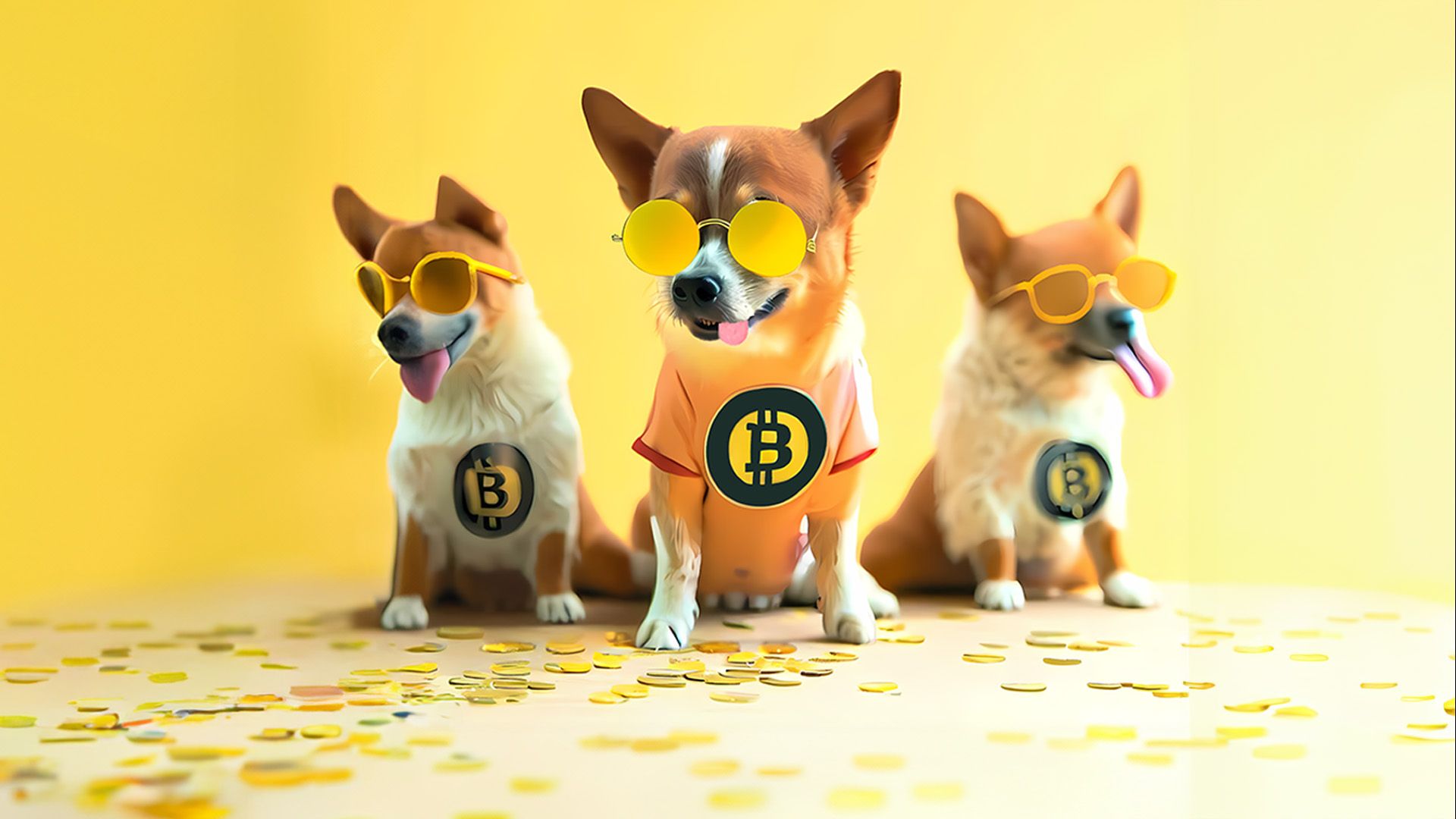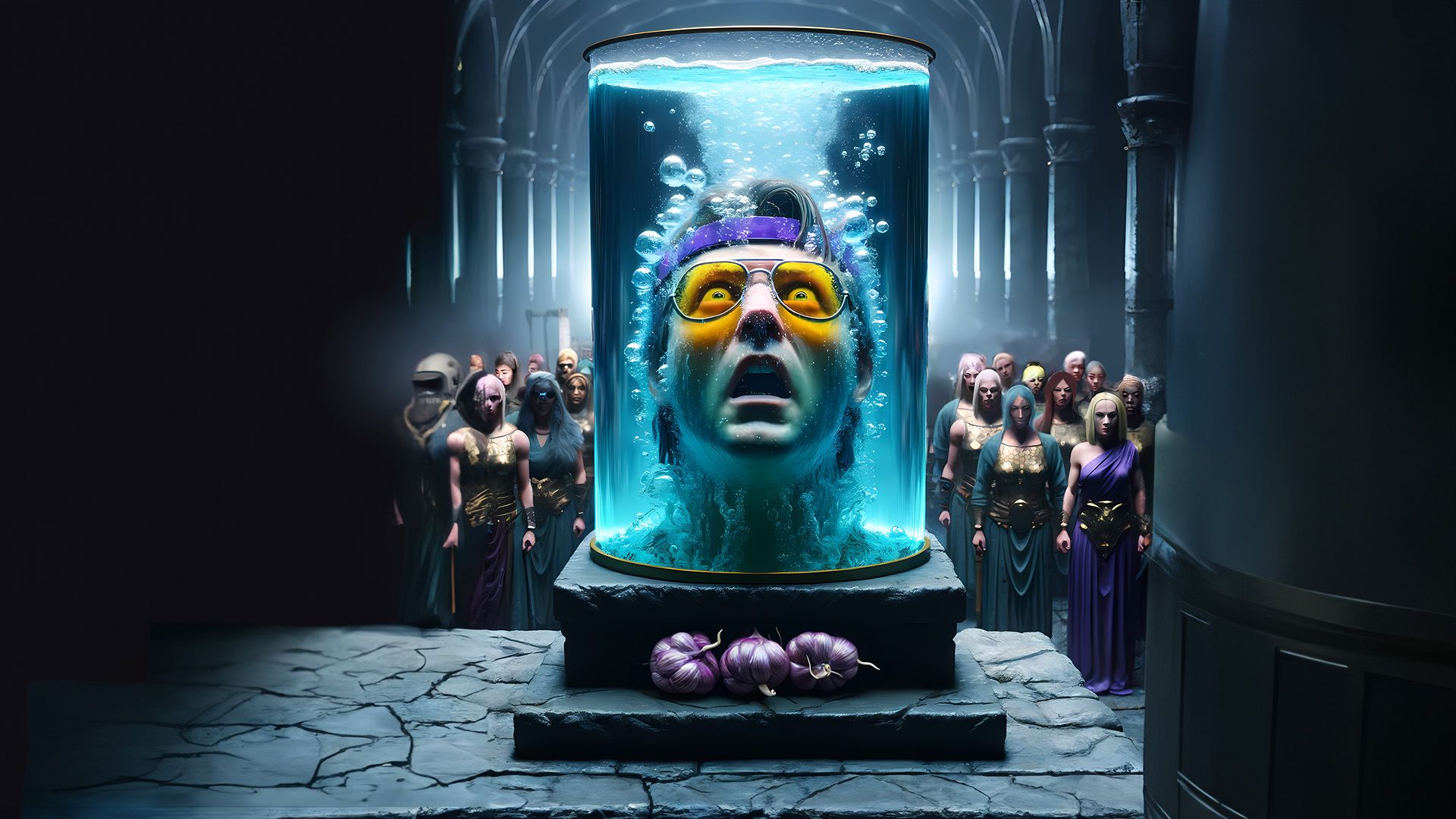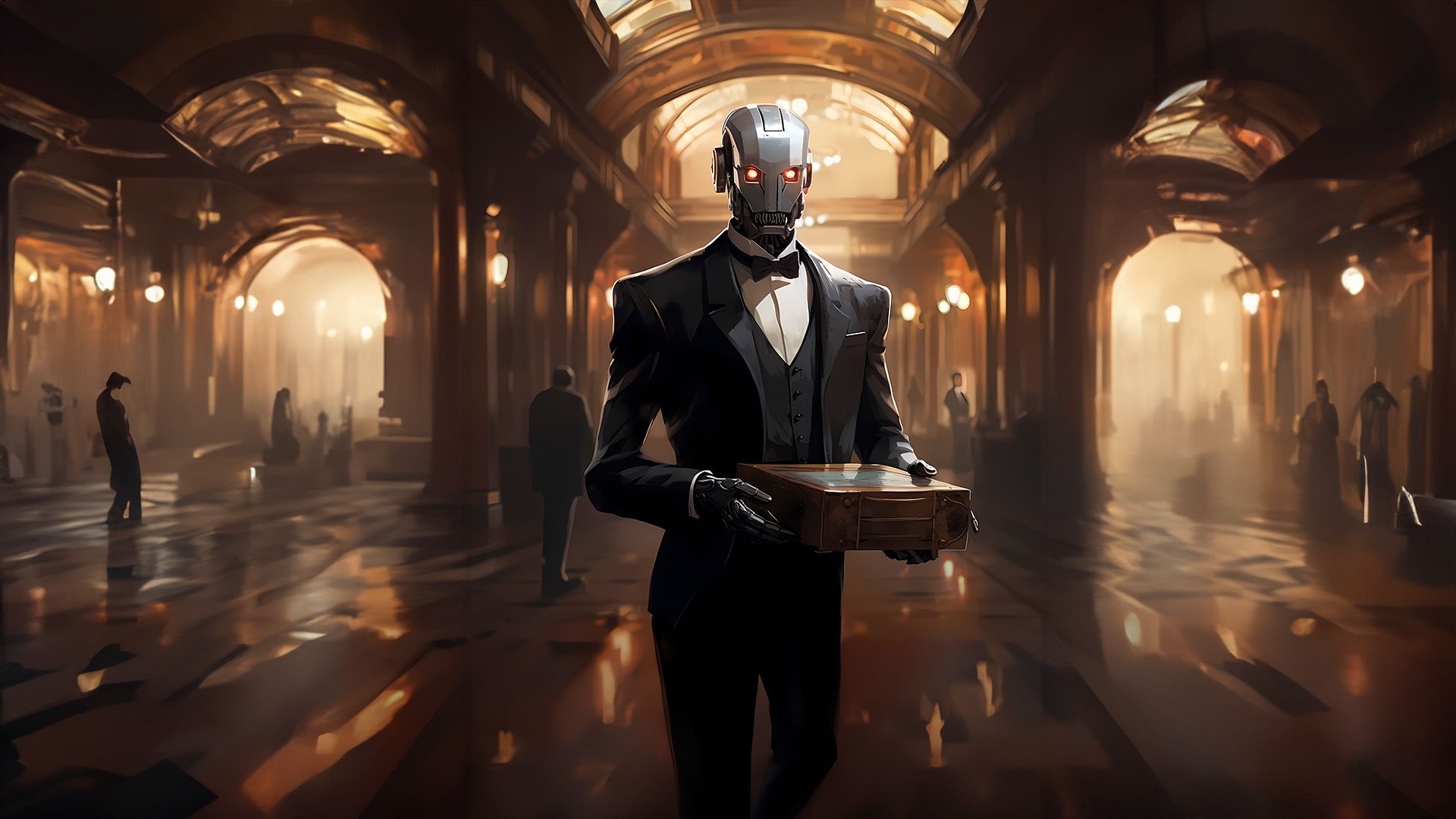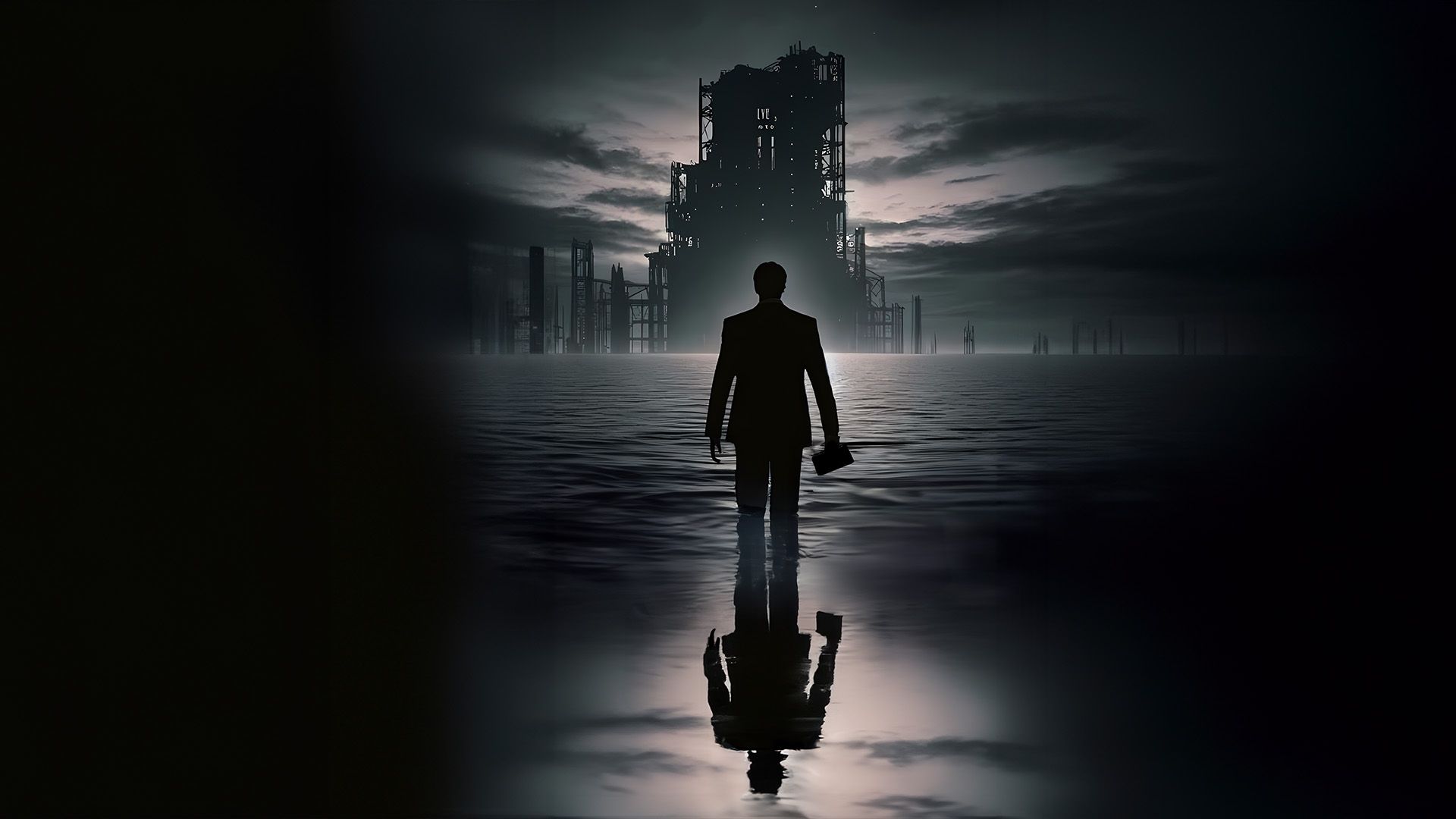·Philip Charter · fiction · 15 min read
Legacy
When my father died, an entire ecosystem system of beneficiaries withered. Moussa Ag El Khir funded scholarships and community projects, paying thousands of Dinars monthly to stop the oasis town of In Salah from burning up. The few families we knew operating outside the oil-field economy would be forced to flee to the Mediterranean coast, along with just about every other Berber.
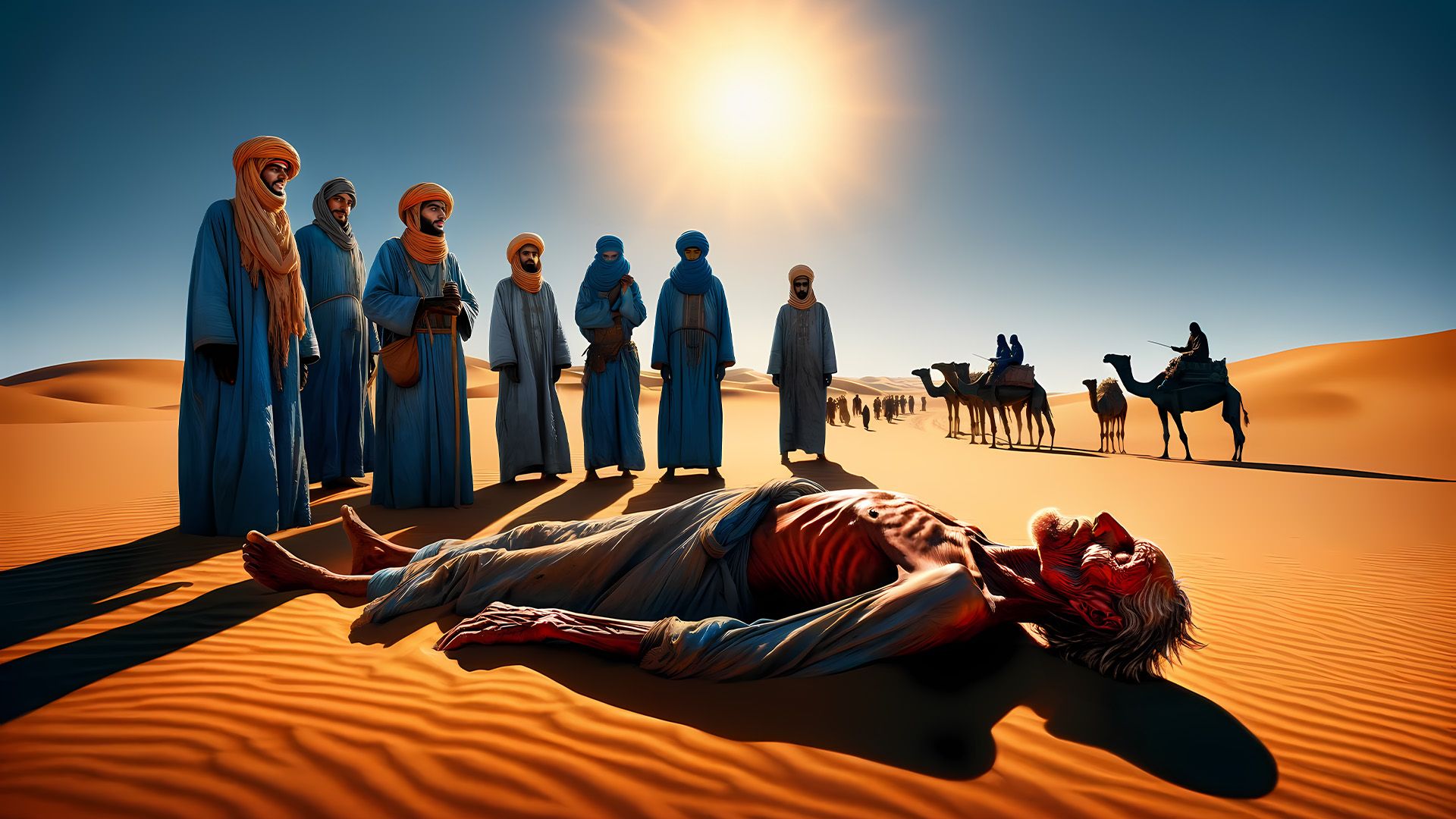
Ecology
It wasn’t unexpected. My father had cystic fibrosis for all sixty-one years of his life. So far, that’s the only legacy he’s passed on to his children. My brothers are just carriers, but me, his precious daughter ended up like him in more ways than one.
We sat there in the lawyer’s office in Algiers, my brothers and I, staring at the ledger which contained payment for his life’s work.
“And he only left one word in his will?” asked Ibrahim for the third time. Ecology.
The lawyer said Moussa was very clear. He chose each of the keys himself. The contents of the ledger would belong to whoever could decode his life — those who understood the real meaning. Then he cut all communications and walked into the Sahara. The Tuareg caravan on the road to Akabli found his body a week later, reddened by sand burn.
Earth
We made an agreement that day. To share each word we discovered. We could break the code together. Of course, Ibrahim and Hama didn’t share anything. We barely speak. That’s what happens when one child follows their father into science and her two brothers move to France the minute they get rich enough to buy a wife. I bet they spent longer looking into legal loopholes to get their hands on my father’s assets than they did trying to identify the keys.
That day was the start of my second life, and I went from research assistant at a regional university to private-key detective. 2048 words and few clues where to start. Although I was 27, I was virtually a grandmother according to the In Salah wives. But of course, I could never be a grandmother, or even a mother. Every night, I scoured photos in the family archive. An initial sweep of his digital footprint returned no out-of-place instances of any keywords.
It took me a year to find the GPS tag he’d added to one photo — an eighteen-year-old daughter standing next to a father proud of his first infinite solar prototype. The panel has long-since been torn out by the oil corp, but the base is still there. I drove the three kilometres from the town limit and shone the high beams at the spot. When I got out, the air was cool but still thick with sand. A few more steps through sinking dunes and I saw it. He’d scratched a little globe into the blistered metal, and for a moment, my mucus-laden lungs tasted clear air.
Trigger
The next word took three years. Friends, contacts, professors, biographers — visits to anyone with whom he might have left a clue. But it was in the In Salah hospital, where, upon a routine CF checkup with Jerome Devailier, a French doctor, ‘trigger’ appeared. The government might stack everything against the desert peoples, but they hadn’t taken away healthcare. I’d been living off the kindness of neighbours while finishing my thesis on the very solar technology my father developed. How could he have known the ‘buyer’ was just a tendril of the very oil company he sought to defeat.
Dr Devalier went through the list of carcinogens and allergens to avoid with my new drugs. Over forty triggers which could be my downfall. If I was lucky, I’d live as long as my father did.
By then, my research stipend was long gone. I existed on toughened bread and soup which always carried the taste of the scorched city air. Yet, I stayed. The public library, disconnected from the grid by the oil corp, was where I finished my manuscript. They would fight its publication. Since father’s money no longer flowed into the town, many had deserted me. There were those who said he killed an entire people by selling his solar patent to the wrong buyers. Others in In Salah worshipped his name, but eventually, they all trudged north to the cities. My brothers sold the family home from under me, forcing me to follow.
When I returned from the hospital, I dug out my father’s medical documents. On every page, the word ‘trigger’ was underlined. That was the moment I knew my life’s work would be unlocking the ledger, not publishing studies on long-dead solar panel technology. That battle was lost.
They
All we need is a simple document, but here, it is the administrators’ job to send people away. Physical copies are only issued in extreme circumstances. Citizens’ Registry screens played endless repetitions of how to apply for digital documents. The shrill voices of family members desperate for the original copy of a document which was pirated, drowned the TV messaging. Women removed headscarves and revealed thick black hair; teenagers paced. The atmosphere thickened with sweat. And hours passed. Each appointment required a reset of digital protocol, biometric tests and identity cards from legal descendents. Through counterfeit identities, our Dinars leak into the hands of criminals, but still the government denies the need for bitcoin. They just print more money. They is the word my father used for the government who fought his patent so hard.
After a four-hour wait, I discovered that the physical death certificate included an ‘identifying mark’ on the deceased’s body. The ink was fresh — etched into the shoulder blade of a man who wished to turn his back on the government that ignored its people. The tattoo read aqqalan, the Tamasheq word for they.
Action
It took two trips to his cluttered Marseille office to convince him I was serious. Two visas, two flights and the small amount from the sale of the family house. But few detectives wanted to work for a promise.
The ledger could not legally be owned in Algeria, and Laurent Mercier was the only serious professional who entertained a percentage of what was on there. The solar tech patent and documents from my father were enough to start Laurent on the trail. ‘Preliminary’, he said, until I had the ledger in my posession.
“Flying is not easy with my condition,” I said.
He lowered his sunglasses. “Working is not easy without money.”
Contact with my brother through the lawyer in Algiers was achingly slow, but eventually they agreed to give me possession. What was 33% of nothing anyway? Years had gone by.
So, when I sat for the second time, in the sweaty office in Marseille, I gave Laurent the ledger, and he handed me a surprise. In all his business affairs, my father used little English, but the word ‘action’ appeared in all three company names he incorporated in the last three years of his life. We had our fifth word, and I finally had someone on my side.
Make
Some days, I could barely walk to the public library. I became lethargic and mostly sat in the cool dark of my room in the shelter. The government refused to provide housing outside of Algiers, but a Tuareg organisation from Mali opened a shelter in In Salah. Bulging eyes and faded clothes stared back in the mirror each day. How long had it been since I’d been to a wedding, or celebrated a friend’s child? Occupants came and went, and all that was left was a barren room and one meal per day.
As the sun punished the city with every ray of Allah’s untapped gift, streets grew thick with dust, and the local government fell, seat by seat, to oil execs. The only transport running was to and from the oil fields which belched the remnants of the land into the sky. And still they worked. Still they sat on my father’s patent and refused to supply the world with efficient solar power.
With little else to cling onto, I harboured thoughts of how I could spend the ledger money. Fixing the town and replanting lost gardens. Bringing people back. That all took a back seat to decoding the message my father was sending. Laurent and I began to believe that the keys he chose formed some sort of instruction for his legacy. Ten years to the day after his death, I was in the public library, looking for clues in an English history book. On my exit, the librarian stopped me. “We have a gift for you, Kana.”
I waited while he fetched a package.
“Your father instructed me to give this to you. But not before this date.”
My hands tore open the package. More books, technical manuals and hand-written notes. Amongst the papers was a tasselled leather bookmark embossed with the four letters that comprised one of the seven missing words. Make.
Citizen
It’s hard for a father in Algeria to admit to his daughter that she is his spirit — the heir to his life’s work. Of course he felt terrible guilt after our mother’s passing. That was when the letters started.
Moussa wrote to himself really, trying to come to terms with bringing a protégé into the world with a bright scientific mind and lungs that would snap her life expectancy. We communicated by letter for the last few years of his life — sharing the breakthroughs of his findings and what it might mean for our decaying oasis town. Analogue writing was the only real privacy, he said. His letters always ran to the same length, as if they were one lesson divided into equal chunks. We even exchanged letters during his last hospitalisation in Algiers. Those words were the only real strength I gained.
It was Laurent who analysed the letters with a new text scanning tool. For me, my father’s last letters were advice, regret, pain, and love, but to Laurent, they were simply a puzzle to solve to get one step closer.
Our letters gave Laurent the idea to communicate via physical mail. The process was painful, with letters sent from outlying towns before being shipped across the Alboran sea and up into France. Muatin was one name my father called me. Like him, I dreamed of helping many through science. This was the few Arabic words in the French letters he wrote. It was also the only keyword included in any of the letters. Citizen.
When
Years of quiet followed. In Salah became unlivable after they co-opted the city reservoir for cooling drilling rigs. Each study that proved the field was still viable funnelled funds away from the locals who clung on. Resettlement benefits went up and all but the semi-nomadic Tuaregs left. I followed. My health could not take much more desert. In the cooler coastal plains, I recovered strength, and subsidies for new medications helped me survive on a meagre teaching salary.
With no further clues, my Marseillais detective lost interest. His last letter, sent years ago, stated with unusual brevity that he was resigning the case. No payment was due.
I had lost my health, my father, his work, my money, our house, the town, and I spent each week delivering science and English classes to teenagers. They had no more hope for our country than I had. Algerians had already lost the Sahara. A one-degree temperature shift each decade of my life had shrunk Africa and sent its peoples northwards.
My father’s word puzzle occupied my thoughts. The combinations and permutations of letters and characters which had millions of possible meanings but only one correct answer. Yet simple linguistic logic provided the next word. The headteacher was a linguist — a profession long lost to the higher-powered text analysers and language AI. He spoke little English, but asked about the categorisations of grammatical terms in the 2048 key words.
“Why do you ask?”
“Because,” he said, “for a sentence of twelve words, at least one conjunction is necessary to form a second clause.”
He was right. I had been focussing on lists and complex codes to build my father’s motto. When I got home, I furiously searched my list of terms for conjunctions. I found only one. ‘When.’
Can
The permutations were still huge. Even eliminating some of the more conceptual words did not help. Millions of sentences existed in my dead father’s mind. Millions of meanings all lost to the need for more energy to fund the world’s great thirst for energy. Still, the panels in most of the ‘dead middle’ (as the space between the tropics became known) melted at over 50 degrees.
I was back in Paris for CF treatment. As a young woman I would have been pleased to make fifty years. But the realities of daily visits and the sickness brought on by medication stung. I wanted things to end, even when I discovered the next key.
It had been years since I had dreamed of the freedoms my father’s fortune could bring. Parts of Asia held out against bitcoin, but the cost of countries doing business off-network had become prohibitive. Eventually, the fossil conglomerates would give in to the need for solar mining and the provision of universal energy.
It was in a Parisian hospital bed that I discovered ‘can’. My wardmate, a rough labourer from Oran, found a biography in the hospital library that made me sit up straight. ‘Can’ was repeated in almost every description of my father which came from his one-time business partner’s book. And it was this Arabian ‘businessman’, Abdulkarim Rahman, who brokered the deal that robbed the world of infinite solar power. Each page he mocked my father as believing only physical impossibilities are impossible. He branded him the ‘can man’.
Drastic
During my recuperation, I spent the final two weeks of my visa stay in Marseille. My days passed with endless algorithm tweaks to reject or accept word orders for the elusive twelve-word sentence my father once wrote.
Food lost its taste, and friends and colleagues in academia had scattered. In-person meetings were often contained to the night hours, but Marseille was not a place to go out after dark. The latest protests had gotten violent, and the government looked likely to topple. My people had always been resilient, but when the option to move and operate a caravan was removed by General Hafiz, part of my spirit died. I resolved to spend my final years in In Salah, however uncomfortable they would be.
My final port of call before returning was Laurent’s office. The eTaxi cast me out into the dusty street and I wheezed as I climbed the three flights of stairs to his tiny door on Rue Marché. We hadn’t spoken in years, but I was surprised to find a different name about the door. Pascale Dupont, Investigateur.
The assistant I remembered was quite the opposite to Laurent — slow and methodical, short and heavy set.
“Madame,” he said. “I have difficult news.”
Their business had always straddled the law, but I never imagined an ex-officer of the law could be convicted of treason.
“A closed-door trial,” said Pascale. Then he handed over an air-gapped 3D storage file. “Laurent knew you would come for this.”
My mind cast forward to the reams of information he must have built on my father. The patents and technical diagrams he illegally acquired and other clues. I instantly recognised the brand of storage file as a keyword. Drastic.
“How can I thank him?”
“He is dead, madame.” Pascale hung his head. “He survived prison for only two weeks.”
Must
My final years brought me home. In Salah had gained fame for its one group of Tuaregs who refused to leave. The Lakzis owned a house in a desperate condition, not dissimilar to my failing body. By the age of fifty-two, I could no longer walk, but they welcomed me. I pooled my disability allowance and some money I’d gained from selling my father’s watch. We waited for the world to mourn the death of a once great city. We would keep it alive by refusing to move, by refusing to permit its rebranding as an ‘industrial area’. Now the oil fields were finally drying up, they wanted to dig under the town.
We had managed to eliminate half of the remaining words. Just under 1,000 possible selections for the final two words, but little idea of an order.
The problem was that I was the only English speaker among them, and it took great energy to attempt to teach the meaning of the words and possible grammatical constructions for my father’s sentence.
But soon, patterns began to emerge. Fragments of word pairings and groups. ‘Trigger drastic action’ appeared again and again in the permutations. ‘They can’ and ‘When they can’ gave a tantalising glimpse. We ranked sentences in terms of likelihood to form the full key and correlated as by far the most likely remaining words. Due to the need for a modal verb, ‘must’ scored highest by our calculations.
In this race to unlock the ledger before In Salah’s destruction, we nosed ahead. Yet the day of that discovery was my final day in the desert. An air ambulance transported my feeble body to Algiers, and I would never return.
They messaged me — so close. They would unlock the ledger with the final word after my operation. The bitcoin could undo the wrongs of the past, and my father’s sentence would live on.
End
The phrase which began the global revolution first appeared on the wall of a much disputed oil refinery in the desert outside In Salah, Algeria.
When they can make ecology end, citizen earth must trigger drastic action
Soon, the graffiti marked government buildings in Algiers. Activists took to the streets. Governments crumbled and currencies collapsed. Climate groups received massive donations said to come from ‘the one’, a ledger with a huge stack written off by financiers the world over. The codebreaker credited with unlocking the ledger was unable to witness the transfer of 10,000 coins to the Global Climate Fund due to her death, aged 52, from a congenital condition.
The words of Moussa Ag El Khir now mark each of the millions of panels which line the ‘dead middle’. They contribute over 80% of the Earth’s power supply.
To mark the fiftieth anniversary of his death, the World Climate Forum will be held in the town of his birth, In Salah, Algeria. This story, compiled from the diaries of his daughter, Kana Ult El Khir, will be read as the opening address of the conference.
